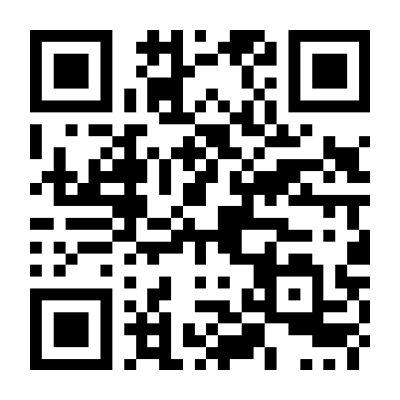单选题
1分
How Deafness Makes It Easier to Hear【如何让耳聋的人更容易听见】 Most people think of Beethoven's hearing loss a...
How Deafness Makes It Easier to Hear【如何让耳聋的人更容易听见】
Most people think of Beethoven's hearing loss as an obstacle to composing music. However, he produced his most powerful works in the last decade of his life when he was completely deaf.
This is one of the most glorious cases of the triumph of will over adversity, but his biographer, Maynard Solomon, takes a different view. ___1___. In his deaf world Beethoven could experiment, free from the sounds of the outside world, free to create new forms and harmonies.
Hearing loss does not seem to affect the musical ability of musicians who become deaf. They continue to "hear" music with as much, or greater, accuracy than if they were actually hearing it being played.
___2___. He described a fascinating phenomenon that happened within three months: "my former musical experiences began to play back to me. I couldn't differentiate between what I heard and real hearing. After many years, it is still rewarding to listen to these playbacks, to ‘ hear' music which is new to me and to find many quiet accompaniments for all of my moods. "
How is it that the world we see, touch, hear, and smell is both "out there" and at the same time within us? There is no better example of this connection between external stimulus and internal perception than the cochlear implant. ___3___.However, it might be possible to use the brain's remarkable power to make sense of the electrical signals the implant produces.
When Michael Edgar first "switched on" his cochlear implant, the sounds he heard were not at all clear. Gradually, with much hard work, he began to identify everyday sounds. For example, "The insistent ringing of the telephone became clear almost at once.”
The primary purpose of the implant is to allow communication with others. When people spoke to Eagar, he heard their voices "coming through like a long-distance telephone call on a poor connection.” But when it came to his beloved music, the implant was of no help.___4___.He said, "I play the piano as I used to and hear it in my head at the same time. The movement of my fingers and the feel of the keys give added 'clarity' to hearing in my head.”
Cochlear implants allow the deaf to hear again in a way that is not perfect, but which can change their lives.___5___.Even the most amazing cochlear implants would have been useless to Beethoven as he composed his Ninth Symphony at the end of his life.
文章(36~40)
A No man-made device could replace the ability to hear.
B When he wanted to appreciate music, Eagar played the piano.
C Still, as Michael Eagar discovered, when it comes to musical harmonies, hearing is irrelevant.
D Michael Eagar, who died in 2003, became deaf at the age of 21.
E Beethoven produced his most wonderful works after he became deaf.
F Solomon argues that Beethoven's deafness "heightened" his achievement as a composer.
Most people think of Beethoven's hearing loss as an obstacle to composing music. However, he produced his most powerful works in the last decade of his life when he was completely deaf.
This is one of the most glorious cases of the triumph of will over adversity, but his biographer, Maynard Solomon, takes a different view. ___1___. In his deaf world Beethoven could experiment, free from the sounds of the outside world, free to create new forms and harmonies.
Hearing loss does not seem to affect the musical ability of musicians who become deaf. They continue to "hear" music with as much, or greater, accuracy than if they were actually hearing it being played.
___2___. He described a fascinating phenomenon that happened within three months: "my former musical experiences began to play back to me. I couldn't differentiate between what I heard and real hearing. After many years, it is still rewarding to listen to these playbacks, to ‘ hear' music which is new to me and to find many quiet accompaniments for all of my moods. "
How is it that the world we see, touch, hear, and smell is both "out there" and at the same time within us? There is no better example of this connection between external stimulus and internal perception than the cochlear implant. ___3___.However, it might be possible to use the brain's remarkable power to make sense of the electrical signals the implant produces.
When Michael Edgar first "switched on" his cochlear implant, the sounds he heard were not at all clear. Gradually, with much hard work, he began to identify everyday sounds. For example, "The insistent ringing of the telephone became clear almost at once.”
The primary purpose of the implant is to allow communication with others. When people spoke to Eagar, he heard their voices "coming through like a long-distance telephone call on a poor connection.” But when it came to his beloved music, the implant was of no help.___4___.He said, "I play the piano as I used to and hear it in my head at the same time. The movement of my fingers and the feel of the keys give added 'clarity' to hearing in my head.”
Cochlear implants allow the deaf to hear again in a way that is not perfect, but which can change their lives.___5___.Even the most amazing cochlear implants would have been useless to Beethoven as he composed his Ninth Symphony at the end of his life.
文章(36~40)
A No man-made device could replace the ability to hear.
B When he wanted to appreciate music, Eagar played the piano.
C Still, as Michael Eagar discovered, when it comes to musical harmonies, hearing is irrelevant.
D Michael Eagar, who died in 2003, became deaf at the age of 21.
E Beethoven produced his most wonderful works after he became deaf.
F Solomon argues that Beethoven's deafness "heightened" his achievement as a composer.
参考答案: F

 百度扫一扫练题
百度扫一扫练题
 关注千题库公众号
关注千题库公众号








